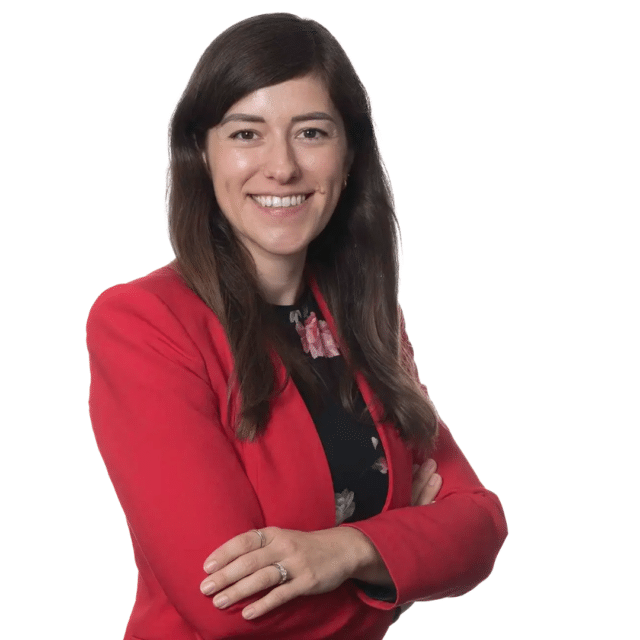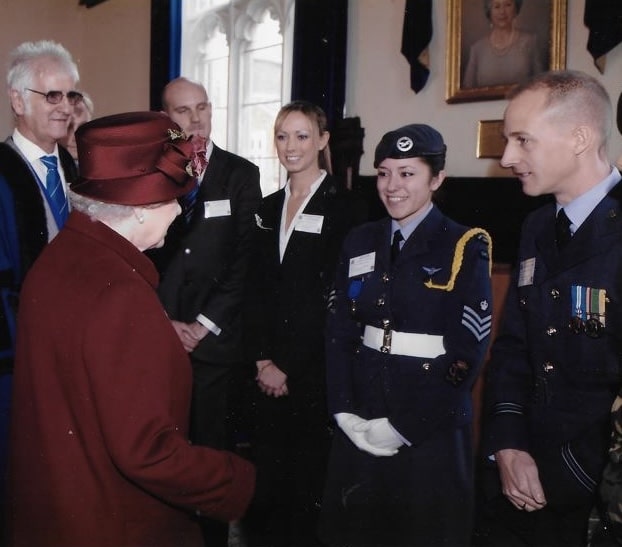
Championing Equality in the Workplace
Emma joined Bloxham in the Lower School with an academic scholarship. She excelled in her GCSEs achieving top grades, as well as receiving the Junior Physics and Chemistry Prizes at Founderstide. She was also awarded with gold in the UK Mathematics Challenge. Having decided on a career in law early in childhood, she was swayed after joining the Air Cadets into a military career as a pilot, however this wasn’t to be. During Sixth Form she went through a difficult time trying to decide what would come next, although her final year at school was a busy one: she was appointed a School Prefect, Raymond House Prefect, Chapel Prefect and she was a Peer Listener.
After Bloxham, Emma took a double gap year before starting a Law Degree through The Open University. She worked full time and studied in her spare time. In 2021, she was named as a Rising Star in Legal 500.
Today, she is Principal Associate at Gowling WLG (UK) LLP and was recently named a Woman of Influence 2024 by The Planner for her work in championing equality in the workplace. At our recent OB Careers event, Emma sat on the panel of law experts. Emma is married and has a 10-month-old son.
Tell us about your fondest memories of Bloxham?
Looking back, I have great memories of life in Raymond. Sometimes it is just the little things like tea and toast at breaktime in the common room catching up with your friends. The House events were always a time where everyone came together and they gave everyone (no matter how extroverted or introverted) a role – House Shout, House Dances and House Sport were always highlights. In particular, House Shout which we won in my first and last year in Raymond – a great leaving prize for all of us in Upper Sixth. Mrs White (now Mrs Skevington) was always really supportive of all the girls in Raymond. In the Sixth Form, Founderstide was always a special day too: celebrating everyone’s achievements inside and outside the classroom and the ball in the evening.
What did it mean to you to be awarded an academic scholarship?
My parents moved to the village so that I would be able to go to the local secondary state school and had never really considered sending me or my sister to a private school. The headmistress at my previous school suggested that I should consider Bloxham and encouraged me to go for a scholarship. It meant a huge deal to me to get a full academic scholarship and have the education, as well as all the opportunities, that I had. I am very grateful for this.
How did Bloxham prepare you for what you are doing today?
Bloxham gave us a sense of confidence and self-belief that we could do anything. The extracurricular help for skills such as CV writing, interview preparation, commercial awareness were invaluable but so was the life at Bloxham itself. I knew I had to work hard academically but also balance this with other commitments such as sport, music, prefect duties etc. This balancing act has followed me through life but now with work and home life too.
I joined Air Cadets in Third Form, and this meant that I left school early two days a week to attend the training and lessons. It was important to me to have a life outside Bloxham and I loved this part of my life. It gave me new skills and qualifications. I flew solo before I could drive and even met Queen Elizabeth II and Prince Phillip.
Did you always want to be a lawyer?
Yes and no. From early on I wanted to be a lawyer. When my great uncle retired, he would sit in the public gallery in the Crown Court and when I was younger (and still at primary school), my grandad suggested I went with my great uncle one day. So, he took me with him to watch a criminal trial. In my mid-teens, although I was still very interested in law, my time with the Air Cadets made me look further afield and I wanted to be a pilot in the military, and I looked to study engineering. Due to medical reasons, this didn’t go to plan and after school, I worked for a year and then travelled for a year. This made me reflect and I decided that law was where my passion lay.
Today, what does your job involve?
I am part of my firm’s planning and environment team and have built-up a breadth of experience in planning and environmental law. I really enjoy my environmental work as it is a massively evolving area and appeals to my science side (I took chemistry, physics, maths and economics at A Level). I am involved in planning and highways matters for both public and private sector clients on projects such as large-scale regeneration, residential, office, commercial, retail and logistic developments. The variety of work has always appealed to me as it is a mixture of contentious and non-contentious. Working in this field of law also lends itself more readily to a work life balance and, whether I was going to have children or not, that was important to me.
Some of my work is advising on planning litigation, both bringing and defending challenges in the High Court and Court of Appeal, although generally this is something that most parties usually want to avoid. As much as I love litigating and “a shiny day in court,” it’s a last resort because it is so expensive. If we can avoid litigating, generally this means we’ve done a good job because we will have saved our clients lots of money.
What is your proudest professional achievement?
I am really proud of getting my law degree and the feeling I had standing in the auditorium at my graduation. Having been to other graduations, there is a very different feeling at an OU graduation as your peers have also all been studying alongside other commitments (working, caring etc).
Secondly qualifying as a solicitor and going to the admission ceremony at the Law Society, London, with my parents and now husband. The feeling that all the hard work had finally paid off and celebrating that with those who had supported me the most was special.
Finally, being promoted to my current role and being name a Woman of Influence 2024 by The Planner (a leading publication in the planning profession), while being on maternity leave in 2024. I was determined that my maternity leave would not disrupt my plans, and it was so rewarding that this paid off.
Tell us more about being named a Women of Influence?
When you look at the categories and lists for it, in particular the list for law, it is a mix of solicitors and barristers but it is usually partners of law firms or senior figures being recognised for their cases and day-to-day work, so unless you’re at that level, it is hard to get on the list.
I was super-excited when I found out that I was named as a Woman of Influence. While it would be nice to be recognised for my work, that’s my day job and as much as I like that and I am good at it, I was more proud that my nomination and achievement was because I was recognised for my advocacy in relation to gender equality and equity, as well as co-founding and chairing a UK-wide mentoring scheme for women in the planning profession.
What is the mentoring scheme you co-founded?
Women in Planning was set up in 2012 and is the leading organisation that champions for gender equality in the planning profession. After meeting the co-founders at a conference, I was part of the inaugural committee for the West Midlands branch and went on to chair it.
During lockdown, my counterpart in the East Midlands branch and I spotted a gap for a mentoring scheme. Alongside a committee made up of peers from the West and East Midlands branches committees, we founded the Women in Planning Mentoring Scheme. We launched on International Women’s Day in 2021, and the scheme has been running since and I still chair the committee today.
What drives your passion for equality and diversity?
My upbringing was always very encouraging, and I was never told “you can’t do this because you’re a woman.” Growing up in a co-educational school like Bloxham influenced me: I was never afraid to give my opinion and speak up in class – everyone was equal, regardless of gender.
My first insight into being in a male dominated environment was when I joined the Air Cadets, as the girls were outnumbered about thirty to one, but my gender was never a reason to not do something. More of a shock was when I came into legal practice as a paralegal and gender equality was still very obviously an issue. Somewhat naively, I had thought all these conversations and battles had all been had in the generation before me but then I thought, no, absolutely not, I am not accepting this and there the passion was reignited.
What advice would you give to students?
At school and university, put the work in to get the best grades you can and try to ignore outside distractions. I am a huge advocate for a work life balance and pride myself in having this (most of the time) but in law it is so competitive. Having the best grades/the grades you need (for university, law firm applications etc) makes everything much smoother when making applications because you already tick that box, and it is one less point to have to fight or justify.
At university, when looking to make applications to firms, get organised and get informed. Making applications to firms whether for training contracts or qualifying work experience is a part-time job in itself. It is very much quality over quantity so research the firms you want to apply to. It is better to do five high-quality applications which have been tailored to the firm and carefully considered than ten generic applications.
Alongside applications, starting to build your profile is important – follow firm’s social media pages, vacancy alerts, event notifications with a particular focus on graduate recruitment or early talent teams. They often have separate pages to the main firm pages and can be a really useful knowledge base. Young professional networks are also a great way to meet people and often hold free events. Not all of them are open to university students but it is worth checking. This will all help in starting to build your professional profile and you never know when you will cross paths with people you meet.
What are your hopes for the future?
I love my job, and I am ambitious; I want to continue to grow and progress in my career but more widely, I want to see a more inclusive and representative profession.
On the gender equality front, I joke because people often ask, “when will you be happy?” I respond, “when all the Justices on The Supreme Court have been women for 150 years.” But in reality, we have to compromise because that’s not realistic. Everything is better when it’s more diverse and representative of society at large. I want to keep pushing and putting myself in roles where I can try to make a difference. I want to see more women in the higher echelons of the legal profession: representation matters, and greater diversity and inclusion benefits the profession as a whole.

Emma meeting HRH Queen Elizabeth II during her time in the Air Cadets
Back to all stories

